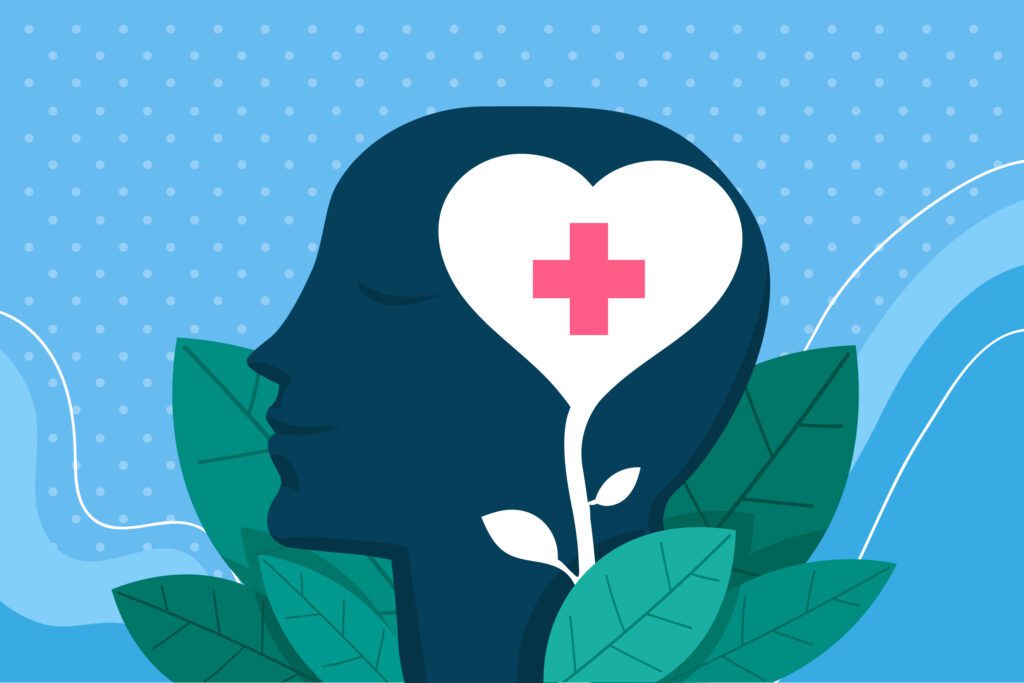
Whether you’re a parent, friend, employer, or colleague, having a basic understanding of the mental health issues or disorders people struggle with can make a huge difference in your interactions with them.
As an example, say you have a classmate with ADD (attention deficit disorder), but you don’t know about it. In class, they constantly distract you, which gets irritating after a while, and you lash out at them for it. If you’d known that they struggle with ADD, you could have approached the situation in a gentler manner, right? That’s a simple example, but it shows us how knowing these disorders can impact how we interact with the individuals who have them.
With that in mind, here are some of the most common mental health conditions and disorders that you might see:
Table of Contents
What classifies a mental health condition or disorder?
According to the Australian Institute of Health and Welfare, a person is considered to have a mental health condition or disorder is classified if they have a clinically significant disruption in their emotional regulation, cognition, or behaviour that is usually connected to distress or something that impairs their ability to function as they should.
Types of mental health disorders
With that in mind, here are some of the most common mental health conditions and disorders that you might see:
1. Behavioural and emotional disorders in children
First up, we have behaviour disorders in children like oppositional defiant disorder (ODD), conduct disorder (CD), or attention deficit disorder (ADD). ODD is characterised by children who are completely defiant and unwilling to comply with instructions, resulting in hostility. You’ll see this disorder play itself out in lying, hostile behaviour, and the tendency to abuse animals and others.
Conduct disorder is very similar but leans more toward pushing boundaries and breaking the rules repeatedly. Often, cases of kids with CD records them starting fires, vandalising private property, etc. Finally, ADD is a very common disorder known to many. ADD is characterised by difficulty concentrating, making impulsive decisions, and being overactive.
2. Anxiety disorders
There are also many anxiety disorders that can be brought on by traumatic events or several other issues. These disorders include clinical panic attacks, phobias, obsessive-compulsive disorder, and post-traumatic stress disorder.
3. Bipolar affective disorder
Bipolar is another common mental disorder that causes erratic changes in a person’s mood. While the cause of bipolar isn’t fully known, research has shown that it does seem to run in families. Those who struggle with bipolar often experience periods of mania and depression and, in some cases, even psychotic symptoms.
4. Depression
Depression is a mental disorder that can be developed due to the circumstances of life. Often, those who struggle with depression would feel low, unmotivated and have reduced energy. This condition can also vary in severity. For example, a person can experience mild depression or severe depression.
5. Dissociation and dissociative disorders
When a person struggles with a dissociative disorder, they essentially disconnect their thoughts, emotions, and pretty much who they are from their identity. You’ll probably recognise some of these disorders: amnesia, dissociative identity disorder, or depersonalisation disorder.
6. Eating disorders
Eating disorders are also fairly common and can be brought on by a person’s self-esteem, peer pressure, or other internal and extrinsic factors. Some eating disorders that you may know are anorexia, binge eating or bulimia.
7. Paranoia
Have you ever seen someone who always has an irrational feeling that people are out to get them? This might be a symptom of paranoia. Official paranoia disorders include paranoid personality disorder, schizophrenia, or delusional disorder.
8. Post-traumatic stress disorder
When people go through life-threatening situations like a car accident, a home invasion, or even going to war, the psychological impact of the trauma they experience can result in them developing post-traumatic stress disorder. When they have an episode, they might feel like they’re reliving the same traumatic event repeatedly. It might also present itself in constant nightmares or severe anxiety.
9. Psychosis
People who are diagnosed with psychosis often experience hallucinations or delusions. The causes for psychosis can vary from a complex number of factors, genetics being one of them and drug-induced psychosis being another. In most cases, medication is prescribed to provide psychological support for individuals diagnosed with psychosis to help them lead a normal life by relieving their symptoms.
Where do you go if you have a mental health disorder?
It can seem quite heavy when you hear about some of the mental disorders people struggle with in life. However, learning about these disorders is a great way to equip yourself to help carry the burden of their conditions in the workplace or when socialising. If you’ve noticed any of the above symptoms in a friend or even in yourself, the best course of action is to get help from a qualified clinical psychologist.
Want to learn more?
Psychology is a diverse and interesting subject, so we couldn’t blame you if you wanted to take a deeper dive into these disorders. Why not consider getting a formal qualification in psychology? You could take a graduate diploma in psychology as a bridging course or even get a certificate to start with. Having a psychology qualification behind your name could significantly improve your career prospects and your own personal development.
Final Thoughts
According to the World Health Organisation, there are over 970 million people in the world who suffer from mental health conditions, that’s about 12% of the world’s population. Learning about these conditions is essential; who knows, your best friend could struggle with one of them, or even you. We hope this article has given you some insight into what some people struggle with and how you could possibly make their lives easier by understanding why they do what they do.
